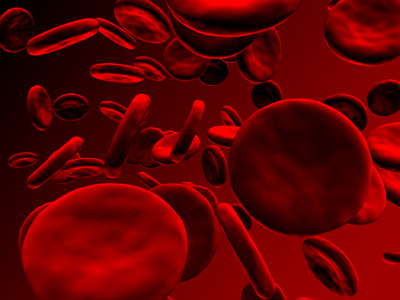
How much do you know about the circulatory system?
Circulatory System 02
Questions and answers about red blood cells, antibodies and platelets. What is a capillary?
This is a fun way to recap your secondary school learning.
Scroll down to play the quiz
1 .
One of the functions of white blood cells is .......
to carry carbon dioxide
to carry oxygen
to engulf microbes
to help the blood to clot
They also produce antibodies and neutralise toxins
2 .
The function of red blood cells is .......
to carry carbon dioxide from the organs to the lungs
to carry oxygen from the lungs to the organs
to form blood clots
to protect the body
Haemoglobin is the protein inside a red blood cell
3 .
Which is the correct statement about capillaries?
They are very narrow blood vessels
They contain haemoglobin
They contain valves
They have thick muscle
Their wall is only one cell thick
4 .
One of the functions of plasma is .......
to carry carbon dioxide from the organs to the lungs
to carry oxygen from the lungs to the organs
to form blood clots
to protect the body
Plasma also transports glucose and hormones
5 .
Which is the correct statement about white blood cells?
They can be produced by a type of blood cell
They contain haemoglobin
They help the blood to clot
They protect the body against disease
Some white blood cells digest microbes
6 .
Which is the correct statement about platelets?
They are produced by the kidneys
They contain haemoglobin
They fight against disease
They help the blood to clot
They stick together, along with a protein called fibrinogen to form a clot which plugs the hole in the blood vessel
7 .
Which is the correct statement about plasma?
A straw coloured liquid portion of blood
It contains haemoglobin
It fights against disease
It helps the blood to clot
It is the liquid part of blood
8 .
Which of the following is NOT a function of blood?
It forms part of the body's defence mechanism
It transports food to cells
It transports oxygen to cells
It transports waste to cells
It transports waste AWAY from cells
9 .
Which is the correct statement about red blood cells?
They can be produced by a type of blood cell
They fight against disease
They have no nucleus
They help the blood to clot
They have no nucleus so that they can contain lots of haemoglobin
10 .
Which is the correct statement about antibodies?
They are produced by some capillaries
They are produced by some plasma
They are produced by some red blood cells
They are produced by some white blood cells
They are part of our immune system
**Unlimited Quizzes Await You! 🚀**
Hey there, quiz champ! 🌟 You've already tackled today's free questions.
Ready for more?
Ready for more?
🔓 Unlock UNLIMITED Quizzes and challenge yourself every day. But that's
not all...
not all...
🔥 As a Subscriber you can join our thrilling "Daily Streak" against other
quizzers. Try to win a coveted spot on our Hall of Fame Page.
quizzers. Try to win a coveted spot on our Hall of Fame Page.
Don't miss out! Join us now and keep the fun rolling. 🎉
**Unlimited Quizzes Await You! 🚀**
Hey there, quiz champ! 🌟 You've already tackled today's free questions. Ready for more?
🔓 Unlock UNLIMITED Quizzes and challenge yourself every day. But that's not all...
🔥 As a Subscriber you can join our thrilling "Daily Streak" against other quizzers. Try to win a coveted spot on our Hall of Fame Page.
Don't miss out! Join us now and keep the fun rolling. 🎉







